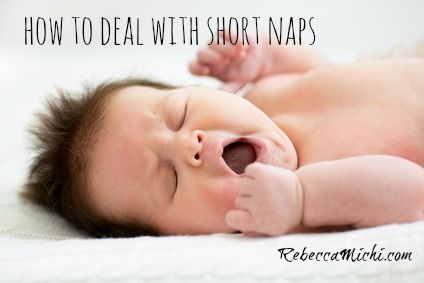How to deal with short naps
How long does your baby nap for? Now tell me how long you’d like your baby to nap for… Chances are, they aren’t both the same! Lots of families come to me for advice on short naps, and wanting to know how to make them longer, so today’s post hopes to address your concerns. Without further ado: how to deal with short naps.
Age appropriate
How old is your baby? Shorter naps in newborn babies are quite common and to be expected, so don’t expect any miracle cures here. The reason why newborn babies nap for shorter periods is simple- they need to wake up for feeds. As their stomachs are tiny, they only take in small amounts at each feed, so need more regular top ups. Once your baby is a little older, you can start to look at ways to lengthen naps if they are still fairly short.
How’s your routine?
Babies- and many adults- need routine. A structure to the day, that can be flexible, that allows them to anticipate what’s coming next. Routine comes very naturally to humans, so it is nothing that really needs to be forced. You will probably find that you are already in a routine that may only need slightly adapting, or you may find that your current routine is perfect. Either way, hopefully you will see how important routine is when it comes to baby’s naps. The only golden rule here is that the routine you follow suits you as a family. So whether bedtime is 7pm or 10pm, if everyone is happy with that, then its a good routine.
Fitting nap times into the routine
It’s best if naps are at the same time each day, give or take ten minutes or so. Allow for the obstacles of life to get in the way, but aim for roughly the same time each day, so that baby knows when to expect to need to sleep. When sleep times are consistent, baby will be sleepy at the same time each day, as the body’s circadian rhythm becomes regulated.
Rule out a few causes of short naps
Of course, its a good idea to have a look at the reasons why baby is only having short naps. Some of the reasons could be:
- Over tiredness. This can drastically affect naps, so make sure baby goes to bed as soon as you notice sleep cues.
- Hunger. Has baby had enough to eat?
- Over stimulation. Regular nap times with a good wind down nap routine will help to ensure baby is relaxed enough for sleep.
- Lack of routine.
- External noise. Some babies are extra sensitive so try to eliminate excess noise as much as you can.
- New skills… sometimes learning a new skill such as rolling over or crawling can affect naps. Expect this to be short lived.
- Uncomfortable. Is baby’s clothing annoying her? Does she have itchy eczema? Its worth ruling this out.
- Pain. Teething, or other pain can affect naps.
Time the naps
When you put your baby down for a nap, if you’re sticking to the same time each day, you’ll find it easier to keep a track of how long the nap is each day. Also take note of how baby wakes up from the nap. If she is tired and grumpy still, she has not had enough sleep. If she seems wide awake and happy, it may be that shorter naps suit her. Sorry!
If short naps are the way forward
If your baby does seem to prefer shorter naps, there isn’t really much that you can do. Watch out for signs of tiredness before nap time, and if baby seems tired before the usual bedtime, it might be time to adjust the routine a little. Try putting baby to bed as soon as she shows signs of tiredness, to see whether over tiredness is disturbing her. If the resulting nap is still short, then it might just be that your baby only needs short naps.
If baby needs longer naps
Most babies will need more than a twenty minute nap during the day. If you’ve been monitoring nap times and lengths, then you should know when your baby is about to stir, so get ready. When she wakes, go in and very quietly use your sleep training methods to send her back to sleep. At first, this may result in very little- if any- extra sleep as baby gets used to the idea of going back to sleep again rather than getting up. Eventually though, if you are consistent, baby will realise that it’s not time to get up and yet and will start to sleep through that initial wake up period.




